I cut my writing teeth on humor columns.
It came from years of reading great writers who knew how to make readers smile and laugh, authors such as Patrick McManus (one of the funniest columnists I’ve ever read, who made me laugh out loud and was a surprise when I finally met him, because the guy was dry as a geology professor), Donald E. Westlake (who combined classic whodunits with humor), Max Schulman (author and creator of Dobie Gillis), and Jack Douglas (most of you haven’t heard of him, but he was an outstanding TV writer who became a noted author in the 1960s and 70s), and finally a good friend and author, Joe R. Lansdale, who combines action and dark humor and is still going strong.
They all taught me one thing about being funny. Don’t try so hard to make people smile and most of the time, subtlety is the answer (which is not the column below).
I can go into the sociological aspects of writing humor, but that ain’t one bit funny.
I sat in on a humor writing class once, and came out weeping. The presenter broke down humor with sentences like, “Writing comedically usually requires establishing a setup pattern and then misdirecting the reader by throwing in a punch line. The simplest way is to create a pair of ideas and then add an incongruent statement. I like to list three, because 30 is too many.”
Good lord.
How about misdirection, which can be funny by taking readers someplace they expect to go and suddenly shifting direction.
“I looked down at my five-year-old son who broke the window and lied about it. I was shocked to think he wouldn’t tell the truth, and had to get him to understand what he’d done wrong, so I knelt on one knee, took his small shoulders in my big hands and looked him in the eye. Son, I have something to tell you.”
“What?”
“Quit picking your nose.”
Most of the things we laugh at in real life are true stories that someone exaggerates for effect. I once wrote a column about running from a bear while wearing a backpack…
“That thing was right on my heels, and I ran like rats across the tundra. My backpack came open and I left a string of equipment behind, my tent, half the food I’d packed, tent stakes, the stove, a laptop computer, two cameras, a chair, the kitchen sink and a VCR along with all my John Wayne videos. Now light as a feather, I left the bear far behind, sniffing the laptop full of newspaper columns and probably wondering what stunk so bad.”
Some other things I’ve learned:
Don’t try to write jokes. Look for something that happened in real life and make a few changes. Here in Texas, every truck has a trailer hitch. We all know they’re right there, but when the guys get together, someone inadvertently barks his shin on the damn thing. While we curse and rub that shin, the rest laugh like loons. What is it that makes us guys giggle like little girls? We’ve all done it. Exaggerated familiarity is funny
Don’t tell your reader something is funny: “Hurts, don’t it,” he joked. Like the old saying goes, if you have to explain it, it ain’t funny.
Avoid sarcasm, except to identify a character.
Surprise your reader.
I’ve judged humor writing contests, and cousin, exclamation points don’t make a story funny!
Use humor sparingly, unless you’re shoving it in someone’s face, like this slightly insane column I wrote some years ago about an Outdoor Detective that somehow caught on with readers. I only produce one of these a year. They’re a lot like fruit cakes, you don’t want too many, but an occasional bite is good.
The Case of the Invisible Case
I’d been puttering around my office all afternoon. After a while I put the putter away, kicked the golf balls into a corner and leaned back in my chair. Putting my feet on the battered desk, I scraped some off on the floor and relaxed.
I had just returned to my job as the Outdoor Detective from a weekend of pheasant hunting in the Texas high plains. We flushed birds for two days. Then I called the plumber and he cleared the drain.
“Don’t flush anymore pheasants,” he ordered.
I joined him and ordered a hamburger and fries as well.
“Try flushing quail, they’re smaller,” he said, then left.
A timid knock at my office door caught my attention. It was noir time. I turned on the background saxophone music to set the mood. “Come in.”
The man who entered looked like he wanted to run. He was sweating. It was his running shoes, headband, and shorts that gave him away. “Where’s that sax music coming from?”
“It’s a mystery ain’t it. That’s what I do. Solve mysteries. What can I do for you?”
“My name is Nobody. I want to hire the Outdoor Detective.”
“That’s me,” I answered.
“I expected more.”
“They always do. What can I do for you?”
“I want to hire you to find my missing hunting guide. His name is Earl. You need to keep your eyes peeled for him.”
“I’d rather not,” I said. “They always dry out when I do that, and those dried peelings crackle under your feet.”
His gaze wandered as I talked. “Is that your dog?” Nobody pointed to the corner.
“Yes.”
“What’s his name?”
“Neil.”
“Play dead, Neil,” Nobody said. “Good dog.”
“He is dead. Croaked last night.”
“Don’t don’t croak.”
“Oh. Wise guy, huh? Fine. Now we know where we both stand.”
Nobody pointed at the floor. “Of course. You’re there, and I’m here.”
“Now that we’ve established that, I’ll help you look for the guide. You can be my partner.”
“But I don’t know how. Maybe you could show me the ropes around here?”
I produced several ropes of various lengths.
“It looks too complicated,” he decided. “Maybe you’d better do it for me. How much will it cost?”
“That depends. Are you rich?” I asked.
“No, I’ve already said my name’s Nobody, but that sometimes confuses people. You can call me Ken.”
“You don’t look like kin. You must be from dad’s side of the family.”
He nodded. “Will it cost a lot?”
“What’s a lot to you?”
“A big piece of land to scrape clean and cover with concrete buildings.”
“I’m talking about money.”
He produced a wad of bills and I licked his hand gratefully. “All right. What happened to your hunting guide?”
“I’m not sure. We were hunting out near Abilene and communicating by walkie-talkies…”
I took notes as he talked. Mostly B flats.
“…and I was in a deer stand. He was in the coffee shop and we were singing a duet when a huge buck stepped into my view. I described it; a large animal with legs and antlers. I heard him order coffee and then he said “shoot.”
I was almost ready to pull the trigger. I just had to load the rifle and attach the scope, when guns began firing all around me. Then machine guns started chattering and pretty soon I heard artillery thumping in the distance. Soon the mortars kicked in for support. It was awful.”
“The shooting?” I asked, sympathetically.
“No, the coffee he’d ordered. He said it was chicory. Ya gotta help me!” he shouted.
“You’ve gotta stop saying words like ya gotta!” I shouted back. “I don’t know what your guide looks like. Do you have a picture?”
He produced an oil portrait of Picasso.
I didn’t say a word. He has mean eyes, I thought, both on the same side of his head.
“What do you think?” he asked.
“Just read the sentences above.” Annoyed, I dummied up.
His eyes narrowed. “I can see the dummy’s mouth move when you talk.”
“It’s supposed to be the other way around,” I answered.
“Good luck.”
“Luck has nothing to do with it.” We shook hands and he left.
I practiced my yodeling and for a while, turned off the music and smiled at Neil. “Good dog,” I said.
I hate it when dogs jump up on people.
*
And with that, potential humor writers, read the authors who make you laugh and study their technique. They’ve figured it out and it’s something that triggers your giggle-box. Learn to use it in your own way.
Good luck, adios, and adieu.

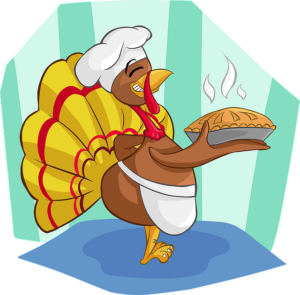 Hope you all had an amazing Thanksgiving!
Hope you all had an amazing Thanksgiving!

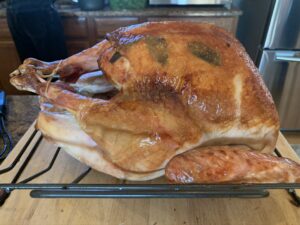
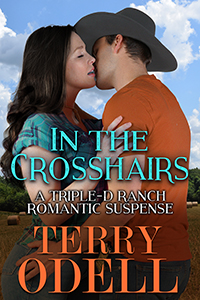
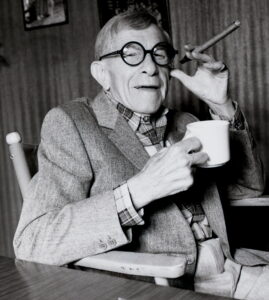
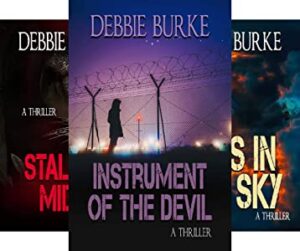


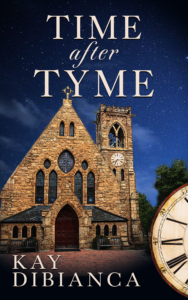
 If I may riff off
If I may riff off 
 Writer friends are the absolute best. They lend advice, encourage when things seem bleak, and help celebrate successes.
Writer friends are the absolute best. They lend advice, encourage when things seem bleak, and help celebrate successes. 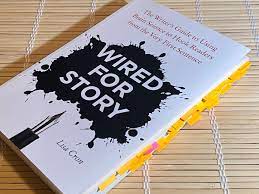 What would you say if I told you that what the brain craves, hunts for, and responds to in every story it hears has nothing to do with what most writers are taught to strive for? What’s more, that it’s the same thing whether you’re writing literary fiction or a down and dirty thriller?
What would you say if I told you that what the brain craves, hunts for, and responds to in every story it hears has nothing to do with what most writers are taught to strive for? What’s more, that it’s the same thing whether you’re writing literary fiction or a down and dirty thriller?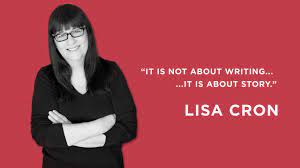 Lisa Cron is an instructor at the UCLA Extension Writers’ Program. She has worked in publishing at W. W. Norton, as an agent at the Angela Rinaldi Agency, as a producer on shows for Showtime and Court TV, and as a story consultant for Warner Brothers and Village Roadshow. She lives in Santa Monica, California.
Lisa Cron is an instructor at the UCLA Extension Writers’ Program. She has worked in publishing at W. W. Norton, as an agent at the Angela Rinaldi Agency, as a producer on shows for Showtime and Court TV, and as a story consultant for Warner Brothers and Village Roadshow. She lives in Santa Monica, California.